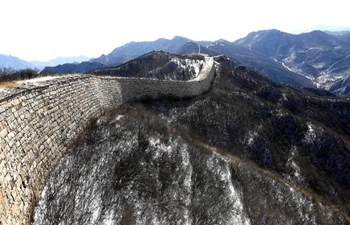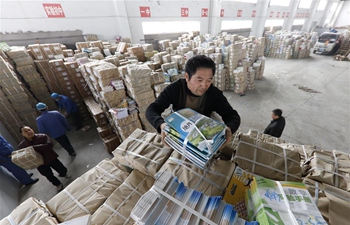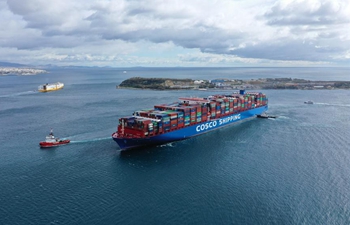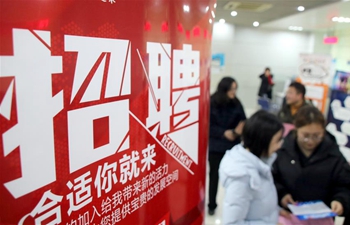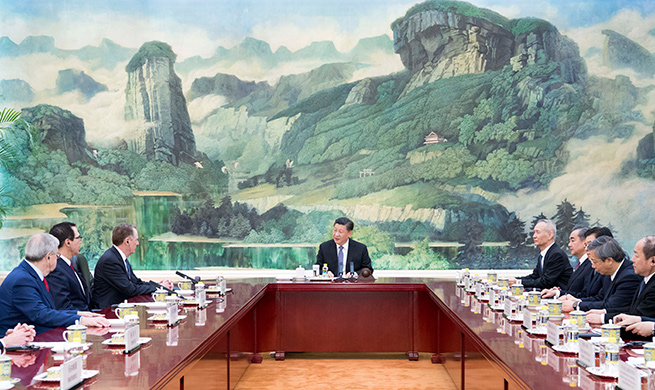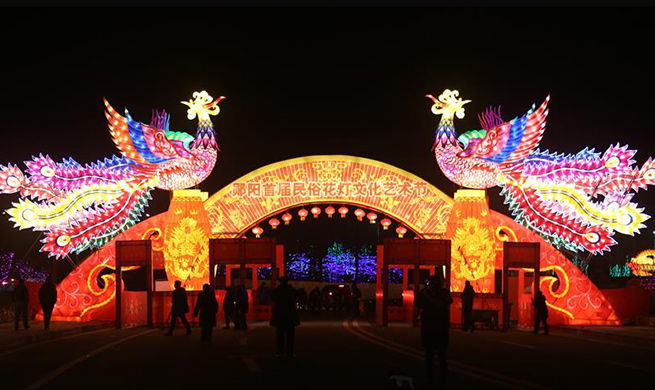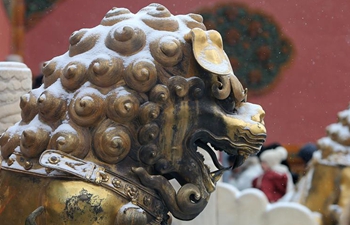DUBLIN, Feb.16 (Xinhua) -- There are ample opportunities for China-Europe financial cooperation as the economic and trade links between the two sides have strengthened, a top Chinese banker has said.
Liu Liange, president of Bank of China (BOC), one of the top four Chinese commercial banks, made this remark during a recent trip to Dublin where he shared his views with Xinhua on the Sino-European financial ties.
In 2018, China-Europe trade reached 682.2 billion U.S. dollars, up 10.6 percent over a year ago whereas the EU (European Union) investments in China witnessed a year-on-year growth of 18 percent to 9.23 billion U.S. dollars, said Liu.
These figures marked notable progress in the China-Europe economic and trade relationship if people compare them with a mere 3.9 percent growth in global goods trade and a 19 percent decrease in global FDI (foreign direct investment) in the same year, he said, quoting the WTO and UN statistics.
"Looking into the future, we see broad space for China-Europe cooperation, which will bring a new opportunity for the financial industries of both sides" Liu said.
While the world's FDI was on the decline in 2018, China's actual utilization of FDI grew by 3 percent to reach 134.97 billion U.S. dollars, indicating global investors' confidence in the Chinese economy, he said, adding that the sustained and stable growth of the Chinese economy and the improving business environment in China will continue to hold an attraction to foreign investments, including those from Europe, in the years to come.
The EU has been the largest trade partner of China while China has been the second largest trade partner for Europe, he said.
The upgrading of the Chinese consumer and industrial sectors has been and will continue to be a strong source of demands for high-end consumer goods, advanced technologies and equipment as well as quality services from Europe while products made in China are getting popular in Europe because of their good quality and reasonable prices, he said.
The two-way demands for each other's products and services will ensure a continued expansion of the bilateral trade between China and Europe, he added.
Currently China takes just 4 percent of the EU's total outbound investments while China's investments only account for 2 percent of the total investments received by the EU, said Liu.
"Such small shares are disproportionate to the economic scales of both sides," he said.
China and Europe are now pressing for the strategic linkage of the Belt and Road Initiative and the Investment Plan for Europe in a joint effort to develop third-party markets, he said, adding that "if China and Europe can well play to their complementarity in funding sources, technology, equipment and construction capability, together with third-party, they will surely deliver a triple-win outcome."
Liu cited the currency arrangement between China and Europe, Europe's position as a leading global financial center and the global financial governance as three main areas where lie the new opportunities for the future cooperation.
The European Central Bank has included RMB into its foreign exchange reserves and the development of offshore RMB markets has made headways in Europe, he said, adding that the currency arrangement between China and Europe will help cut exchange costs, lower exchange rate risk and facilitate economic and trade ties for Chinese and European enterprises.
Europe is blessed with its multiple financial centers, all with global influence and leading infrastructure, Liu went on.
Europe offers China ideal access to the global capital markets and funding platforms and connecting the capital markets between the two sides will facilitate European investors to enter the Chinese onshore market and allow them to share the benefits of China's economic growth, he said.
China and Europe share common interests when it comes to global financial governance, Liu noted.
"In support of RMB's inclusion into the SDR (special drawing rights) currency basket of IMF (International Monetary Fund), European countries were willing to give up their IMF shares," he said, adding that this is a constructive move to make the global financial governance fairer and more reasonable.
"In a word, we are very optimistic about the future financial cooperation between China and Europe,", he said.
Liu arrived in Dublin for addressing the fourth annual European Financial Forum which closed on Wednesday. During his stay here, he also visited the Dublin branch of BOC, which was opened in June 2017. The Dublin branch of BOC is the first of its kind ever opened by Chinese banks in Ireland.

